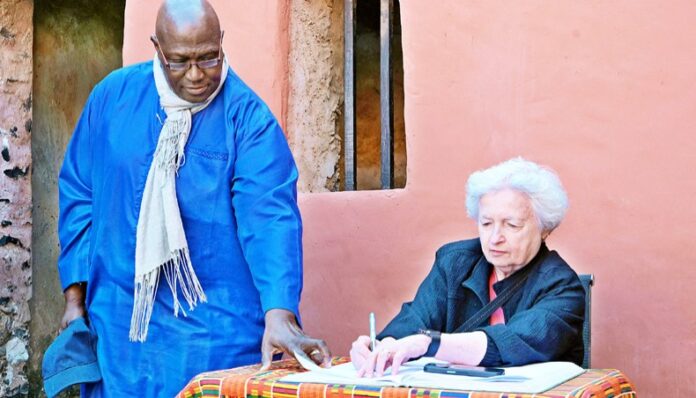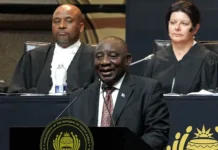US Treasury Secretary Janet Yellen the salmon-coloured house on an island off Senegal on Saturday that is one of the most recognized symbols of the horrors of the Atlantic slave trade.
Yellen, who is in Senegal on a 10-day trip to rebuild economic relations between Washington and Africa, stood in the Guria Island building known as the House of Slaves and launched into the door of no return, from which the slaves were launched.
The Biden administration is trying to signal its support for improving the economies of African countries, many of which have young populations that will eventually make those nations the drivers of growth in decades to come. At an African nation summit held in Washington last month, Biden said he would visit the continent this year in a sign of the desire to increase engagement with the United States.
“Guria and the transatlantic slave trade are not just part of African history,” Yellen said in a brief statement during the visit. We know that the tragedy did not end with the generation taken from here. Even after slavery was abolished, black Americans—many of whom trace their descent through ports like this one across Africa—were denied the rights and freedoms promised to them by our Constitution.”
According to research, the economic benefits reaped by slave-trading countries, including the United States, over hundreds of years of unpaid labor could reach tens of trillions of dollars. And in the United States, African slaves and their children helped build the country’s most important institutions, such as the White House and Capitol Building, according to the White House Historical Association.
The Chancellor of the Treasury acknowledged the current repercussions of that brutal past. “Both in Africa and in the United States, despite the tremendous strides we have made, we continue to suffer the disastrous consequences of the transatlantic slave trade,” he said. “What I take out of this place is the importance of redoubling our commitment to fight for our shared values and principles wherever they are threatened: in the United States, in Africa, and around the world,” he added. “We have more work to do.”
America is trying to appeal to African countries on moral terms, saying that aid and loans from the U.S. will be transparent and fair in ways that Chinese investments have not been.
Before Yellen, other leaders visited the island, such as former US Presidents Barack Obama and Bill Clinton and South African Nelson Mandela. Guria Island is currently a UNESCO World Heritage Site.
Relations between the U.S. and China — the world’s two largest economies — have taken on an increasingly antagonistic streak amid the geopolitical fallout from China’s friendship from Russia, the persistence of the coronavirus and an era of open globalization that has given way to national security priorities.
The past two U.S. presidential administrations have challenged China’s trade practices, with the Biden administration limiting the export of advanced computer chips as it simultaneously tries to boost the U.S. sector.
“This is not competition with China — we want to deepen our engagement with Africa,” Yellen said. “We want to make sure that we don’t create the same problems that Chinese investment has sometimes created here. That we have transparency, that we have projects that really bring broad-based benefits to the African people and don’t leave a legacy of unsustainable debt.”














